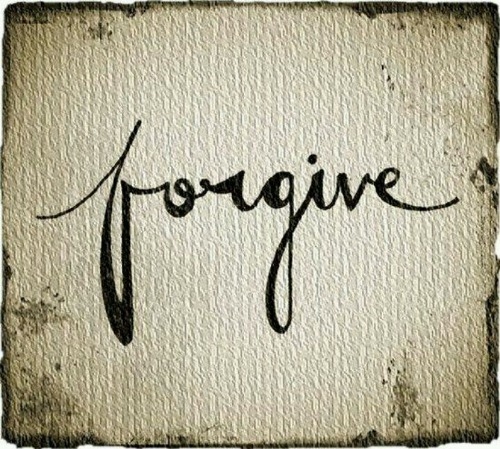
“Most people discover that when hate is gone, they will be
forced to deal with their own pain.” —James Baldwin
I have been thinking about forgiveness a lot lately, especially as I sit with people at the hospital, in their final days or hours. I hear stories from fellow volunteers about how this sacred duty has helped them mend their own relationships. Life is so precious, yet brief. Yet most of us live our lives holding on to little differences and disagreements. One of my beloved relatives is about to be abandoned by her parents. Her crime… she met a wonderful human being, who happens to be from a different religious background, and they have decided to start a life together. As human beings we are conditioned to hold onto culture, religion and politics even at the expense of our well-being and from these elements our identity is shaped. As individuals, as well as nations, we hold on to our differences, rather than seeing our common humanity: that we are all vulnerable beings who want to be happy and free from suffering. However painful our experiences may be, they are just painful experiences until we add the response of hatred, only then does suffering arise. If we react with hatred, that becomes our habitual response. Instead, if we can consider the practice of forgiveness for our own peace, we can make a significant difference in our lives and the lives of those around us.
“The real meaning of forgiveness is to mentally not develop feelings of anger and hatred due to the wrong action of others.” – His Holiness the Dalai Lama
Forgiveness does not mean accepting the wrong-doing of the other person, nor retaining feelings of anger or hatred. These damaging actions do more harm to ourselves than the act of forgiving. The very act of forgiving someone does not mean we have to agree with their behavior in any way. So forgiveness simply means we are not willing to harm ourselves by harboring hatred and anger toward someone else. Cultivating negative feelings toward someone leads to a chain reaction of more negative behaviors and that simply leads to unhappiness.
To practice forgiveness, sit in a comfortable position, close your eyes and bring your attention to the heart. Feel whatever is there
without judgment. Breathe through those feelings. Try to say these traditional words of the forgiveness meditation through your heart.
Think of ways in which you have harmed yourself and harmed others. It is better to begin with minor things, not the big events of your life when you have been harmed. As far as you are able to do so, extend forgiveness to yourself first by saying these phrases to yourself:
I allow myself to be imperfect.
I allow myself to make mistakes.
I allow myself to be a learner, still learning life’s lessons.
I forgive myself.
If I cannot forgive myself now, may I forgive myself sometime in the future.
Think of ways in which others have harmed you – again, beginning with minor harms. As far as you are able to do so, extend forgiveness to them:
Just as I allow myself to be imperfect, so I allow you to be imperfect.
I allow you also to make mistakes.
I allow you to be learners, still learning life’s lessons.
I forgive you.
If I cannot forgive you now, may I forgive you sometime in the future.
Ask forgiveness from others for the harm that you have done to them:
Please allow me to be imperfect.
Please allow me to make mistakes.
Please allow me to be a learner, still learning life’s lessons.
Please forgive me. If you cannot forgive me now, please try to forgive me sometime in the future.
“The weak can never forgive. Forgiveness is the attribute of the strong.” -Mahatma Gandhi
